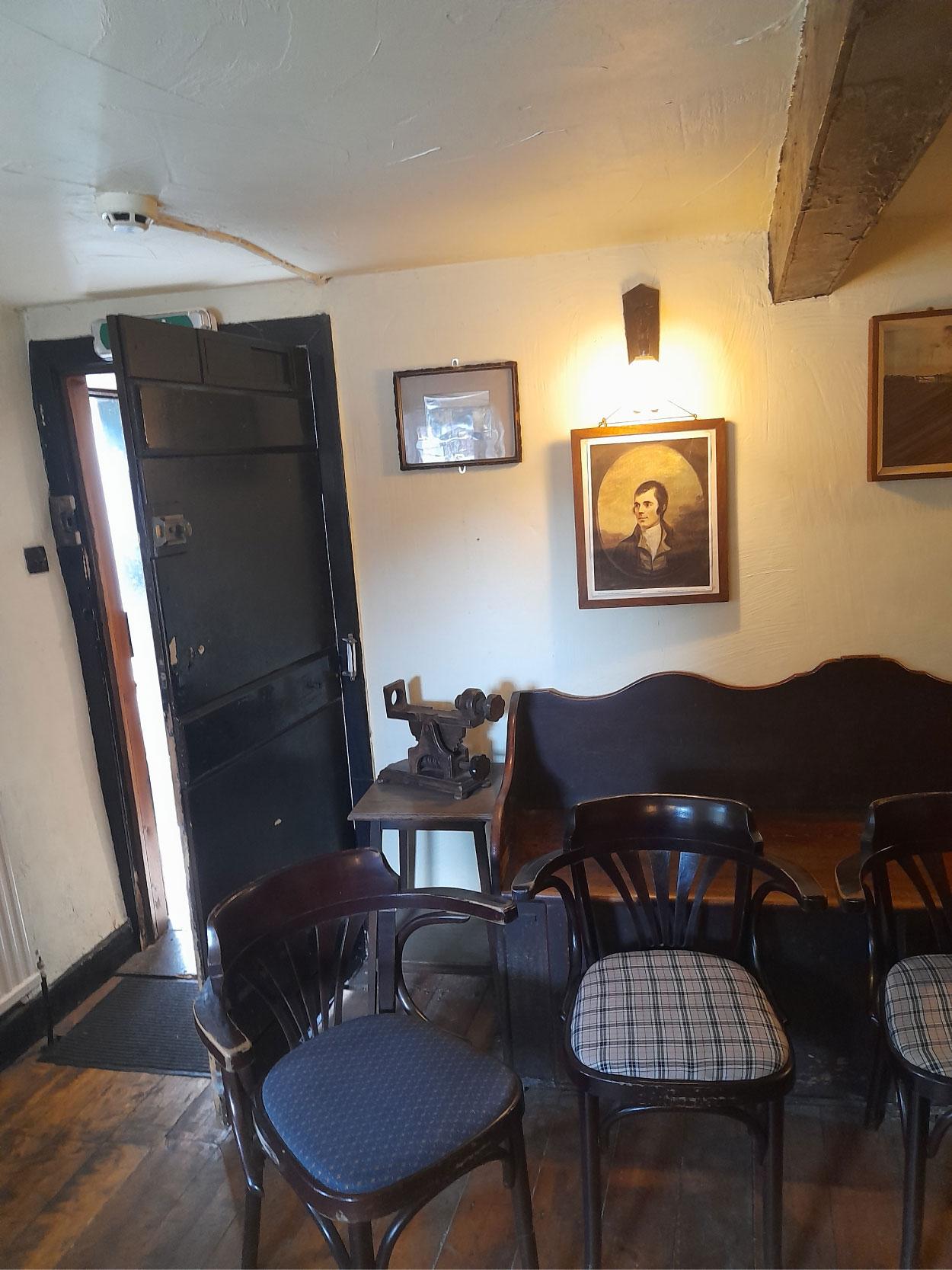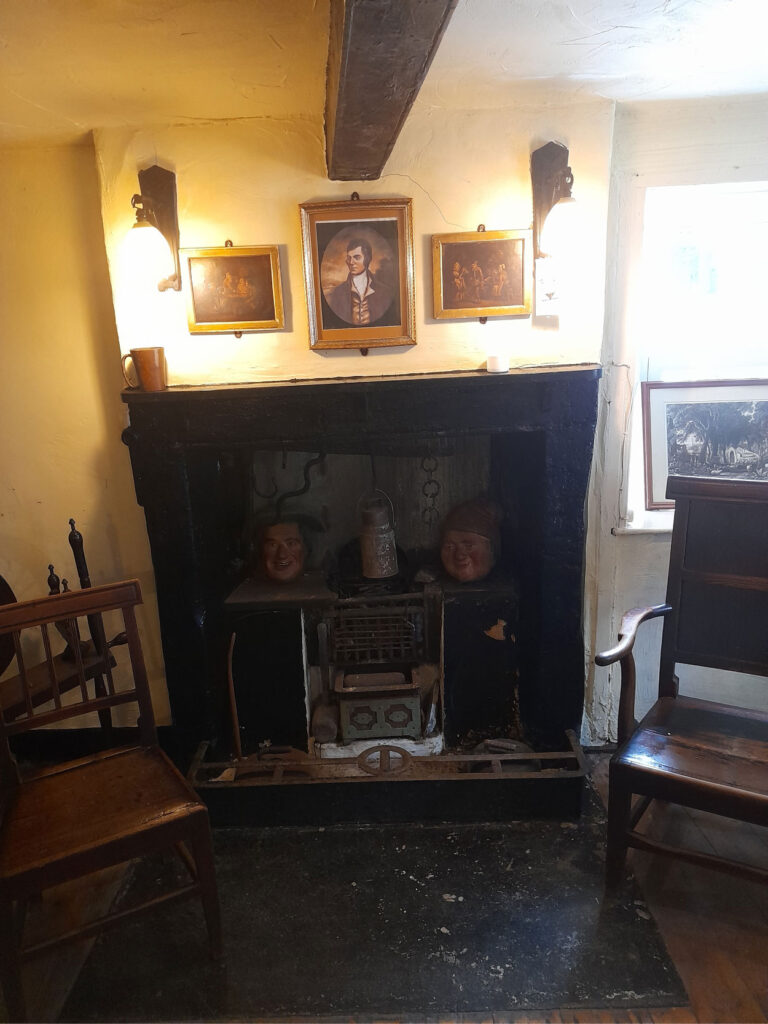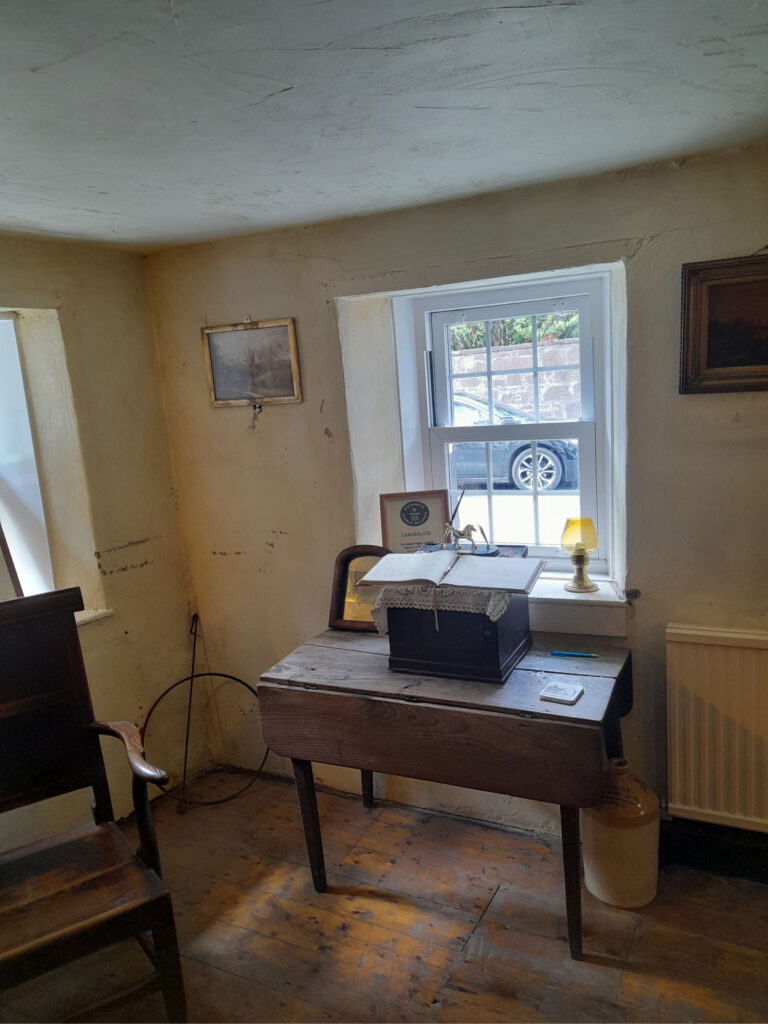It was the small lounge bar that was open in the hostility in Mauchline in Scotland known as Poosie Nancy’s. I can confirm that the connotation is one of the rudest words in any language. With camera in train I sauntered over to the good lady of the hostelry and ordered a half of cider. Sitting in a corner under the large sports tv screen which was opposite the entrance door, I was noticing all and sundry and all and sundry were no doubt noticing me. It was a more elderly clientele that was assembled inside in a sunny, warm day in Mauchline on the last day in May. The town was looking in a happier state than when I had first encountered it just after the Pandemic. On a wall close by, a digital juke box the size of a cigarette machine finished playing a tune. Mid afternoon was not the busiest of times, but there was a cackle of banter that seemed irrepressible, as if the banter had never halted from the heyday of the time when the dubious hostelry was run by Mrs Agnes Gibson.
This was the time when Robert Burns was travailing at nearby Mossgiel Farm and taking liberties with his ‘Mauchline Belles’. Upon drinking up, I sauntered over to a framed print of Burns with a verse beginning ‘ By oppressions, woes and pains’ from a Wallace poem and took a quick snap. ‘You’ll be wanting to see the Burns room then?’ came the unexpected reply from the lady behind the counter.

The room was duly opened and presented itself as like a kitchen of the historical era where the fireplace was the central feature. On drab and dreary, cold, wet days a warm fire would have been transformative and restorative and in bygone days, this fire or one like it, would have sustained the very much challenged that made their way to Poosie Nancy’s.


Looking out to the main street from the ‘Burns room’ at Poosie Nancy’s
It is considered that it was here that Burns found inspiration for his more elaborate writing of ‘The Jolly Beggars’ also known as ‘Love and Liberty: a Cantata’ which was not published during his lifetime. Performing it is a challenge to history but one eminent production at Glasgow University can be found at:-
It was perhaps here in Mauchline that Burns encountered the human cost of colonial wars, in the guise of the severely disabled soldiers having to resort to begging to survive. More importantly, he catches, also, the resilience of the human spirit that can still pass the time in lubricated merriment with a jovial crew in spite of everything.